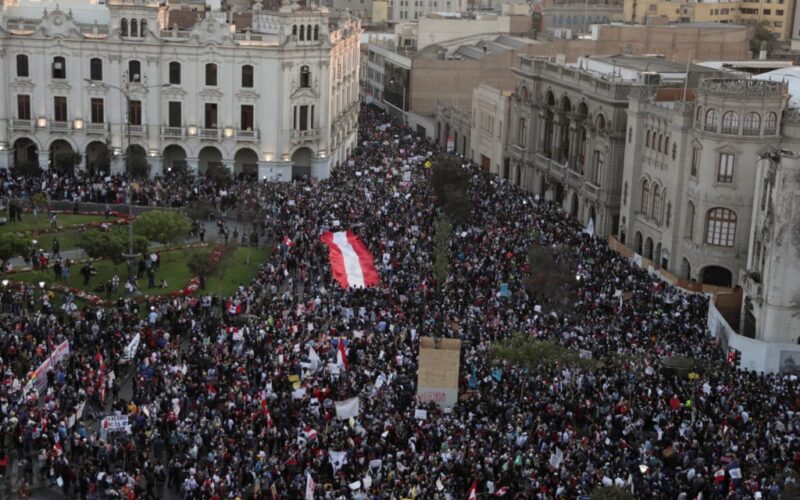LIMA (Rajeev Sharma): A wave of youth-led protests in Peru demanding President Jose Jarry’s resignation has turned violent, resulting in the death of a 32-year-old demonstrator and injuries to more than 100 individuals, according to official sources.
The unrest, sparked by frustrations over economic inequality and lack of social reforms, has been growing for weeks. The latest protest, organized largely by young activists from the so-called Gen Z movement, saw thousands pour into the streets in a coordinated nationwide action.
Tragedy struck when Eduardo Ruiz, a local hip-hop artist known for his activism, was fatally shot during a large rally. Peru’s public prosecutor has opened a criminal investigation into his death, which took place during confrontations with security forces. Authorities have not yet confirmed who fired the fatal shot.
In addition to Ruiz’s death, around 80 police personnel, 10 journalists, and dozens of protesters were injured in the violent clashes, which included stone-throwing, tear gas, and baton charges. The government has pledged a full inquiry into the events.
Despite rising pressure, President Jarry has dismissed calls to resign. “The country needs leadership and order,” he told reporters following a parliamentary session. “My commitment is to maintain peace and democratic continuity.”
Jarry assumed office just days ago, on October 10, becoming Peru’s seventh president in less than 10 years — a reflection of the country’s ongoing political volatility. His appointment was met with skepticism by younger Peruvians, many of whom see the political establishment as corrupt and out of touch with their concerns.
The protest movement initially took shape over demands for higher wages and improved pension conditions for young workers but quickly evolved into a broader political statement against entrenched power structures and lack of opportunities.
International observers and human rights organizations have expressed alarm over the state’s response to the protests and are calling for restraint and dialogue.
As tensions remain high, opposition parties and civil society leaders are urging the Jarry administration to open communication channels with protest leaders to prevent further escalation.

